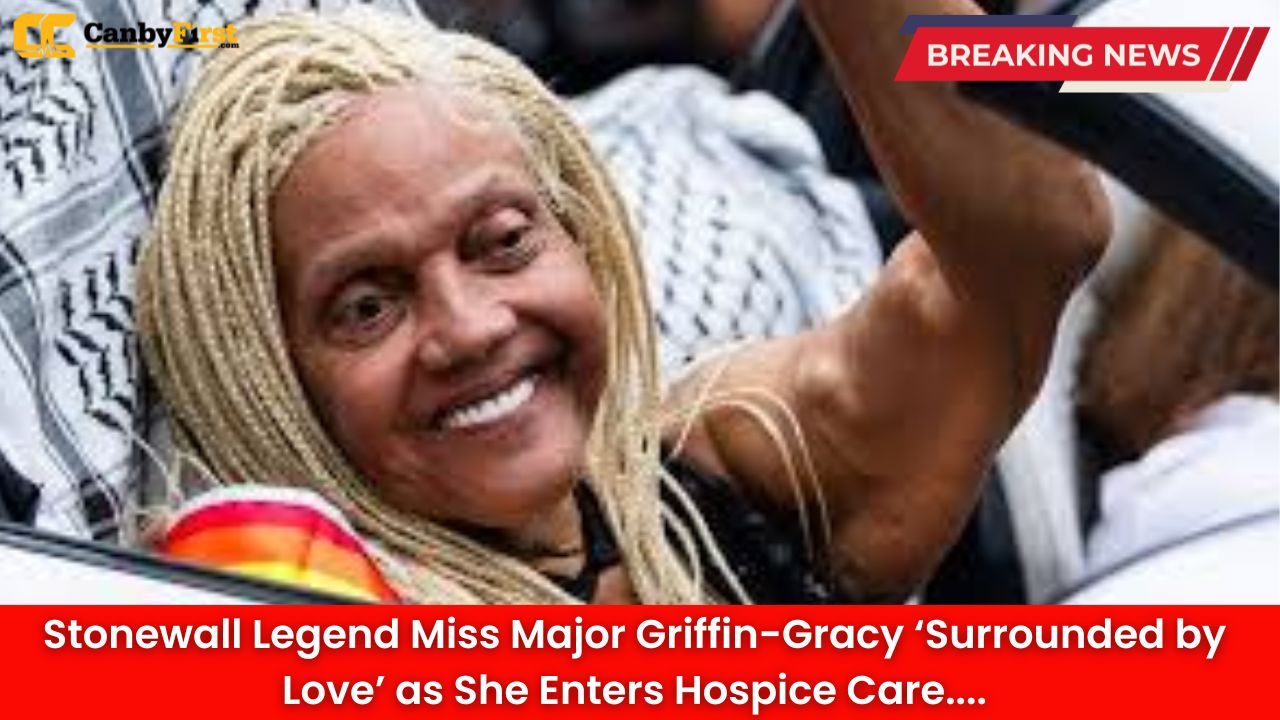Miss Major Griffin-Gracy, the trailblazing transgender activist and Stonewall uprising veteran, has entered hospice care, her loved ones confirmed this week. Known affectionately as “Miss Major” within the LGBTQ+ community, she is spending her final days surrounded by friends, family, and supporters who have been deeply touched by her decades-long fight for justice and equality.
A Lifetime of Resistance
Born in Chicago in 1940, Miss Major became a central figure in the struggle for transgender rights long before activism in the United States gained mainstream visibility. She was present during the historic Stonewall uprising of 1969 in New York City — an event widely regarded as the catalyst for the modern LGBTQ+ rights movement.
In the years following Stonewall, Miss Major dedicated herself to uplifting the most marginalized within the community, particularly transgender women of color, sex workers, and people impacted by incarceration. Her leadership was rooted in a combination of personal experience, compassion, and unapologetic truth-telling.
Also Read
Advocacy Beyond Stonewall
While many activists from that era went on to work within mainstream organizations, Miss Major kept her focus on grassroots movements. She served as Executive Director of the Transgender Gender Variant Intersex Justice Project (TGIJP) in San Francisco, advocating for transgender women in prison and helping them reintegrate into society after release.
Her work often centered around dismantling systemic racism, challenging police brutality, and confronting the injustices faced by trans women — particularly those who were homeless or incarcerated. “Our girls in the street, our girls behind bars — they matter. They deserve to live with dignity,” she was quoted as saying in past public speeches.
Surrounded by Love
Close friends revealed that Miss Major’s health had been declining in recent months. Now in hospice care, she remains in the comfort of her home with loved ones by her side. According to those present, she has maintained her warmth, wit, and sense of resilience, even as she prepares for this final chapter.
“Miss Major taught us all how to live authentically, and now she’s showing us how to leave this world with grace,” one friend shared. “She’s surrounded by love — just as she has surrounded so many of us with hers over the years.”
Support networks across the country have rallied to send messages, cards, and videos to her, ensuring that she feels the immense gratitude of generations who benefited from her advocacy.
Lasting Legacy
Miss Major’s life story continues to inspire activists worldwide. Her presence at Stonewall marked her as a historical witness to one of the most pivotal moments in civil rights history, but her decades of tireless work make her legacy far greater than a single event.
She has been celebrated in documentaries, honored on global stages, and has mentored countless young activists who see her not only as a leader but as chosen family.
In recent years, Miss Major moved to the American South, seeking a quieter life while continuing to speak at conferences and participate in community events. Even in retirement, she remained a fierce voice in the fight for safety and dignity for transgender people.
A Moment of Reflection for the LGBTQ+ Community
As news of her hospice care spreads, LGBTQ+ organizations are urging supporters to reflect on Miss Major’s contribution to the struggle for equality. Her courage, resilience, and authenticity have influenced policy changes, inspired grassroots activism, and ensured that the struggles of the most marginalized are not forgotten.
For many, Miss Major symbolizes the essence of a movement: refusing to compromise on humanity, demanding justice, and leading with love.
FAQs
Who is Miss Major Griffin-Gracy?
She is a transgender activist and veteran of the 1969 Stonewall uprising, known for decades of advocacy for transgender women, especially women of color and those impacted by incarceration.
What is the Stonewall uprising?
A landmark protest in June 1969 against police harassment of LGBTQ+ people in New York City, widely credited with sparking the modern LGBTQ+ rights movement.
What organizations has Miss Major worked with?
She notably led the Transgender Gender Variant Intersex Justice Project (TGIJP), focusing on the rights and dignity of trans women in prison.
Why is she in hospice care?
Her health has declined in recent months, and she is now receiving end-of-life care surrounded by loved ones.
How can people honor her legacy?
By supporting transgender rights organizations, advocating for marginalized communities, and continuing the fight for equality and justice she championed.












